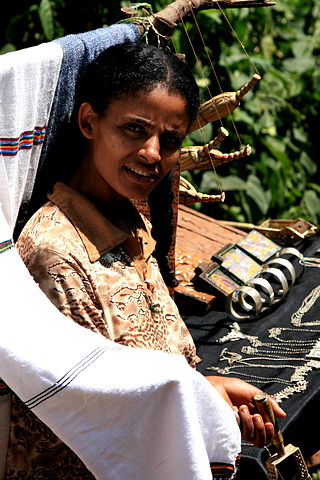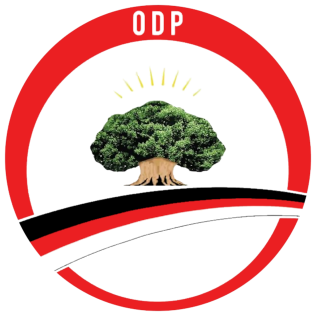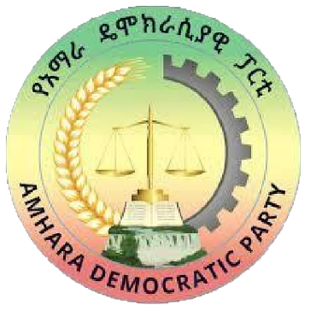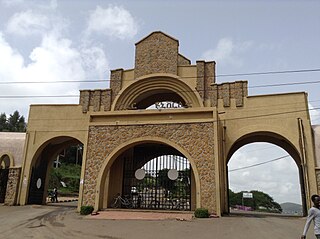
Amharas are a Semitic-speaking ethnic group indigenous to Ethiopia, traditionally inhabiting parts of the northwest Highlands of Ethiopia, particularly inhabiting the Amhara Region. According to the 2007 national census, Amharas numbered 19,867,817 individuals, comprising 26.9% of Ethiopia's population, and they are mostly Oriental Orthodox Christian.
Hailu Shawul was an Ethiopian politician and civil engineer who was the leader of the Coalition for Unity and Democracy (CUD) during the 2005 Ethiopian general election. He was also the leader of All Ethiopian Unity Party from 1996 to 2013. He died on 6 October 2016, while receiving treatment at a hospital in Bangkok, Thailand.
Asrat Woldeyes was an Ethiopian surgeon, a professor of medicine at Addis Ababa University, and the founder and leader of the All-Amhara People's Organization (AAPO). He was jailed by the Derg and later by the Ethiopian People's Revolutionary Democratic Front (EPRDF). After his death, The Guardian described him as "successively Ethiopia's most distinguished surgeon, physician and university dean, most controversial political party leader and best known political prisoner".

The Oromo Democratic Party, formerly known as the Oromo People's Democratic Organization, was a political party in Ethiopia, and part of the alliance with the Amhara National Democratic Movement, the South Ethiopian Peoples' Democratic Front and the Tigrayan Peoples' Liberation Front that formed the Ethiopian People's Revolutionary Democratic Front (EPRDF). In the August 2005 Regional assembly elections, the party won 387 out of 537 seats in the Oromia, and 14 out of 36 seats in the Harari Region.

The Amhara Democratic Party (ADP), formerly known as the Amhara National Democratic Movement (ANDM), was a political party in Ethiopia. The party was one of four members of the Ethiopian People's Revolutionary Democratic Front (EPRDF) that ruled Ethiopia at the time. In 2012, the party chairman was Demeke Mekonnen, who replaced Addisu Legesse in 2010. In November 2019, prime minister Abiy Ahmed, holding the role of EPRDF chair, unified the constituent parties of the coalition into a new party called Prosperity Party.

The Oromo Federalist Democratic Movement Oromo: Warraaqsa Federaalistii Uummata Oromoo, OFDM) was a political party in Ethiopia, created in 2005 by Bulcha Demeksa to further the interests of the Oromo people as an alternative to the armed Oromo Liberation Front. In the 15 May 2005 federal election, the party won 11 seats, all from the Oromia Region. In March 2006, the party Whip was Mesfin Nemera Deriesa from the West Wallaga Zone. The OFDM merged with the Oromo People's Congress (OPC), forming the Oromo Federalist Congress (OFC), in 2012.

The University of Gondar, until 2003 known as the Gondar College of Medical Sciences, is the oldest medical school in Ethiopia. Established as the Public Health College in 1954, it is located in Gondar, in Amhara Region of Ethiopia. In 2010, the university offered 42 undergraduate and 17 postgraduate programs.

The Unity for Democracy and Justice was an Ethiopian political party. It was founded by Birtukan Midekssa on 20 June 2008, based on the parties that constituted the Coalition for Unity and Democracy. It was a major component in the eight-party Medrek coalition, the largest opposition coalition in the 2010 election. In May 2019, the party merged with the Ethiopian Citizens for Social Justice, bringing an end to the party.

General elections were held in Ethiopia on 7 and 18 May 1995 for seats in its Council of People's Representatives; elections in the Afar, Somali, and Harari Regions were delayed until 28 June to assign experienced personnel who could solve possible conflicts and irregularities. This was the first regular multi-party election in Ethiopian history, and the first election since the adoption of a permanent constitution the previous December. Several opposition parties boycotted the election, including the All-Amhara People's Organization, Council of Alternative Forces for Peace and Democracy in Ethiopia, and Ethiopian Democratic Unity Party.

The Transitional Government of Ethiopia (TGE) was an era established immediately after the Ethiopian People's Revolutionary Democratic Front (EPRDF) seized power from the Marxist-Leninist People's Democratic Republic of Ethiopia (PDRE) in 1991. During the transitional period, Meles Zenawi served as the president of the TGE while Tamrat Layne was prime minister. Among other major shifts in the country's political institutions, it was under the authority of the TGE that the realignment of provincial boundaries on the basis of ethnolinguistic identity occurred. The TGE was in power until 1995, when it transitioned into the reconstituted Federal Democratic Republic of Ethiopia that remains today.

Ethiopian nationalism, also referred to as Ethiopianism or Ethiopianness, according to its proponents, asserts that Ethiopians are a single nation, and promotes the social equality of all component ethnic groups. Ethiopian people as a whole regardless of ethnicity constitute sovereignty as one polity. Ethiopian nationalism is a type of civic nationalism in that it is multi-ethnic in nature, and promotes multiculturalism.

Amhara nationalism is a form of ethnonationalism and political movement that advocates for and advances the interests of Amhara people in Ethiopia, asserting that Amhara designates a single, secular nation with an ethno-cultural identity unique to itself. The movement broadly emerged as a counter discourse of modern Ethiopian politics, which is based on a thesis of national oppression.

The 2021 Ethiopian general election to elect members of the House of Peoples' Representatives was held on 21 June 2021 and 30 September 2021. Regional elections were also held on those dates.
Arena Tigray or Arena Tigray For Democracy and Sovereignty is an Ethiopian political party based in the Tigray Region and participating in the Medrek coalition federally.
The Metekel massacre was a massacre that took place on the night of 22–23 December 2020, in the Metekel Zone of the Benishangul-Gumuz Region, Ethiopia. As of 23 December 2020, the Ethiopian Human Rights Commission counted 100 deaths. Authorities responded by killing 42 suspects and arresting seven officials.

Since the 1990s, the Amhara people of Ethiopia have been subject to ethnic violence, including massacres by Tigrayan, Oromo and Gumuz ethnic groups among others, which some have characterized as a genocide. Large-scale killings and grave human rights violations followed the implementation of the ethnic-federalist system in the country. In most of the cases, the mass murders were silent with perpetrators from various ethno-militant groups—from TPLF/TDF, OLF–OLA, and Gumuz armed groups.
The 1995 Ethiopian Federal Constitution formalizes an ethnic federalism law aimed at undermining long-standing ethnic imperial rule, reducing ethnic tensions, promoting regional autonomy, and upholding unqualified rights to self-determination and secession in a state with more than 80 different ethnic groups. But the constitution is divisive, both among Ethiopian nationalists who believe it undermines centralized authority and fuels interethnic conflict, and among ethnic federalists who fear that the development of its vague components could lead to authoritarian centralization or even the maintenance of minority ethnic hegemony. Parliamentary elections since 1995 have taken place every five years since enactment. All but one of these have resulted in government by members of the Ethiopian People's Revolutionary Democratic Front (EPRDF) political coalition, under three prime ministers. The EPRDF was under the effective control of the Tigray People's Liberation Front (TPLF), which represents a small ethnic minority. In 2019 the EPRDF, under Abiy, was dissolved and he inaugurated the pan-ethnic Prosperity Party which won the 2021 Ethiopian Election, returning him as prime minister. But both political entities were different kinds of responses to the ongoing tension between constitutional ethnic federalism and the Ethiopian state's authority. Over the same period, and all administrations, a range of major conflicts with ethnic roots have occurred or continued, and the press and availability of information have been controlled. There has also been dramatic economic growth and liberalization, which has itself been attributed to, and used to justify, authoritarian state policy.
Asrat is a name. Notable people with the name include:
Woldeyes is a surname. Notable people with the surname include:









